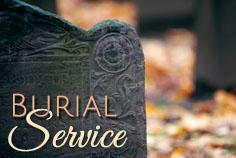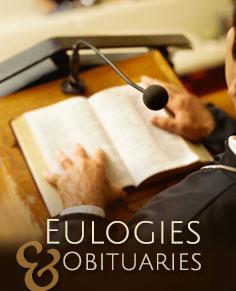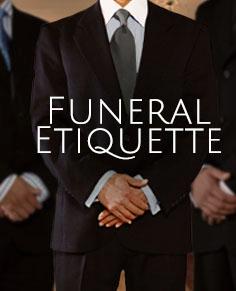Funeral Planning
When we lose a loved one, there are many important decisions to be made, legal arrangements to sort out and service plans that must be quickly made. Combine all of this with dealing with the pain of grief, and funeral planning can quickly become an overwhelming and stressful time.
As one of the most trusted funeral homes in Church Hill, our goal is to make it as easy as possible for you and your loved ones to deal with loss. Whether you are pre-planning a funeral or seeking our services at the time of need, our funeral directors and licensed funeral home staff are always ready and willing to help. We strive to help you with all the details, letting you breathe a little easier and focus on grieving instead of worrying. Should you prefer to speak with a member of our staff about our funeral planning services and how to plan a funeral, we invite you to give us a call at 423-357-4113
Types of Services
Click on one of the services to learn more about the type of service.
When Death Occurs
No matter if a death is sudden, or if it something that was anticipated, the loss of a loved one makes us feel emotional and overwhelmed. No amount of preparation can fully prepare you for the loss of a loved one. When you are in a heightened emotional state, even the most basic decisions can seem staggering. The following is a guideline of what needs to be done within the first 24 hours after death.
When death occurs at home or a place of business
If the person was not under hospice care, the police will have to be notified immediately. The police will be dispatched to the home and place the call to the coroner/medical examiner. From there the coroner/medical examiner will take the body and determine whether further action is necessary. The coroner/medical examiner must release the body before a funeral home can step in. If the person was under hospice care, contact the hospice representative if they were not present and they will notify family members of the proper procedures to follow.
When a death occurs at a hospital/nursing home/hospice facility
The staff of a care facility, such as a hospital or a nursing home, will notify you and the necessary authorities immediately after a death has occurred. If a funeral home has been provided to the hospital or nursing home, they will be notified at the time of death. If you are present at the hospital when the funeral director arrives, they will ask a few questions about the deceased individual’s wishes and set up a time to come into the funeral home to make arrangements If you are not present, a funeral director will contact you by telephone to discuss these arrangements.
Informing a Funeral Director
Once everything has been cleared with the proper authorities, the next call you place should be to a licensed funeral director. Funeral directors are here to help you obtain a death certificate, transport the body, and, in the event pre-planning was not done, select a casket/urn and arrange the funeral/memorial service. The funeral director will also help you notify the employer and insurance company of the deceased to assist with those arrangements. Funeral directors are here to help and advise you and will work very hard to relieve the stress and logistics involved in funeral planning.
Meeting a Funeral Director
You should meet with a funeral director within 24 hours of a death to begin making final arrangements for your loved one. Deciding on these final arrangements may seem like a very daunting task, especially when you are in heightened emotional state, but funeral home staff members have years of experience dealing with these issues, and strive to ensure everything goes as smoothly as possible.
Making Arrangements
First the Funeral Director will gather information required for the death certificate. This includes:
- Full Name and Address
- Marital Status
- Race/Ethnicity
- Date and City of Birth
- Highest Level of Education
- Father’s Name, Mother’s Name (including maiden name)
- Name of Spouse (if married or widowed)
- Occupation and Employer
The funeral director will also need pertinent documents required to do all the legal paperwork, those documents include:
- Account Statements
- Beneficiary Designations
- Life Insurance Policies
- Real Estate Deeds
- Car and Boat Deeds
- Stock and Bond Certificates
- Pre-Nuptial Agreements
- Post-Nuptial Agreements
- Loans and Leases
- Copies of Bills (Electricity, Cable, Phone etc.)
- Last Will
- Tax Returns
If no pre-planning has been done, necessary arrangements need to be made for the funeral service. These include:
- Scheduling the location, date and time of the visitation and funeral service
- Selecting burial or cremation
- Choosing Funeral Products
- Arranging a cemetery plot
- Preparing an obituary notice
- Scheduling transportation arrangements
A funeral director will guide you through all these steps, using your wants, needs and desires as a foundation to create a memorable funeral for your loved one. From here the funeral services can be personalized. Did your loved one have a favorite sports team? What was their favorite type of music? What activity was your loved one known best for? Recalling fond memories assists with the grieving process and will help honor the life of your loved one.
Funeral Checklist
Click here to download our family check list
These are questions we will ask upon making funeral arrangments
Eulogies and Obituaries
Click here to learn how to write a Eulogy and/or an Obituary
Funeral Etiquette
Click here to read what is the proper funeral etiquette






